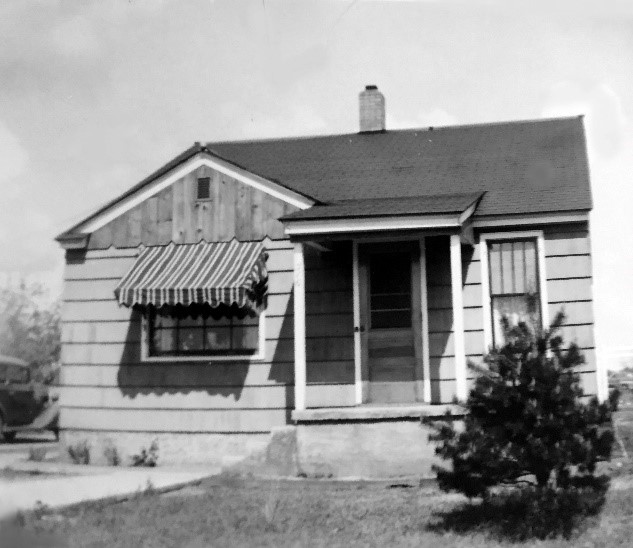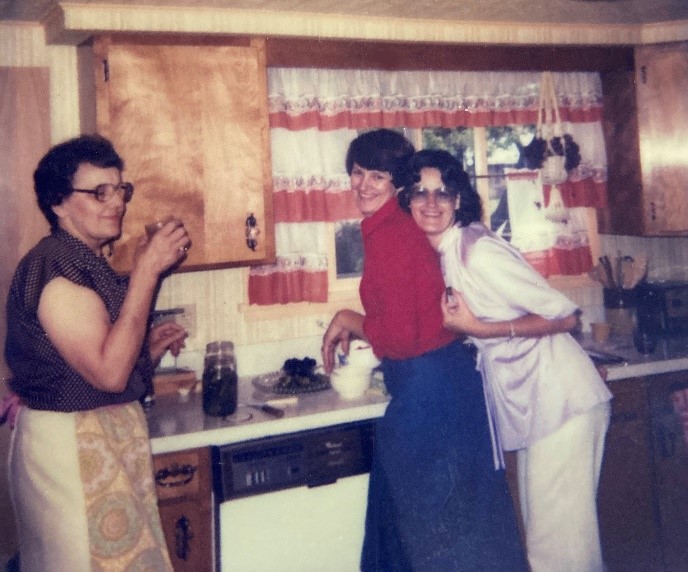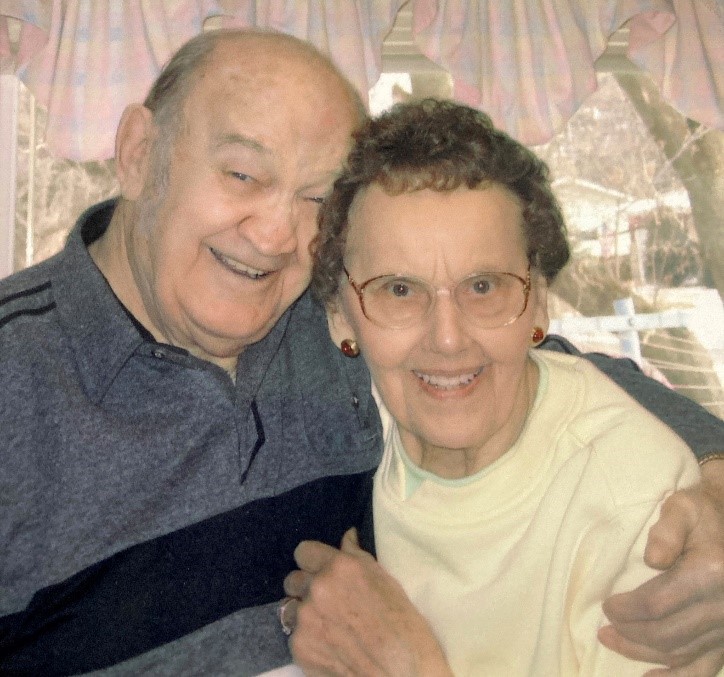
Blog post
Prioritizing Mental Health as a Universal Human Right
By: Neltada Charlemagne, DNP, APRN, PMHNP-BC, PHN, BHC
February 19, 2021 is National Caregiver's Day
In the Beginning
Lynn, age 73, grew up in an upstairs bedroom of a small, cottage-style house in Stevens Point, Wisconsin. The house had no running water or indoor bathrooms―just a water pump and an outhouse. “At night, my brothers used a coal bucket as a toilet, because they didn’t want to go outside in the cold,” Lynn says.
Later, running water, bathrooms and a third bedroom were added by Lynn’s father, Gene. To build the additions, he used discarded wood he had gotten free from the Soo Line Railyard where he worked. Nothing was built to code, but back in those days it didn’t seem to matter, and the added space was comfortable.
It wasn’t long before there was a big hole in the ceiling of one of the upstairs rooms―a hole made by one of Lynn’s two older brothers, Ken. He had been jumping on the bed when his head went straight through the ceiling. “You can still see the patch to this day,” Lynn says, and laughs.
The living room of the house once had an adjacent den, until the day Lynn came home from school and found her mother, Theresa, hammering through the wall. “Your dad will be surprised,” she said, wiping dust off her hands onto her apron. “I want a bigger living room.”

A Home During Good Times and Bad
There were mostly good memories of the house. Lynn says, “The gardens were huge. Remembering them brings me lots of happy memories. My mother always made lots of good food, like homemade rhubarb pie.” Lynn remembers the birth of her youngest sister Debbie, Christmas holidays, Easter egg hunts—and of course, her parents’ wedding anniversary gatherings for 50, 60, and finally, 68 years.
But there had been hard times as well. The time her father came home from work and sat at the kitchen table, his face white, his body shaking, after witnessing an accident at the railroad. And when news of the death of Lynn’s oldest brother, Jim, arrived. Her parents, by that time well into their 80s, sat at that same table, grief stricken.
“Where Everything Was”
As the third of five children born over the span of eighteen years, Lynn grew up in the middle of it all―watching two older brothers grow up and leave home and helping to care for her two younger sisters through their youngest years.
“The house was always a positive place for me,” Lynn says. “That’s where we lived. That’s where everything was. For a long time, even after I had married and moved away, I would say to my husband, ‘Let’s go home.’ It was still home to me until after we had our own kids.”
Lynn says, “As an adult, my childhood home was the best place in the world to sleep, because there, all the responsibilities were off my shoulders. The responsibilities were handed off to my parents. For many years, it was a place where I could relax.”

Changing Responsibilities as Parents Age
As Lynn’s parents entered old age, she shared in their caregiving with her siblings, but it was complicated. She now lived in Minnesota, four hours west of her hometown.
Lynn says, “When my parents got older, it was a lot different. When we visited the house, instead of being relaxing, we felt a sense of responsibility. My parents’ health, the house, everything.”
Lynn continues, “The caregiver, who we hired after my dad died, would call to tell us about health issues with my mom, and we had to be there no matter what. It felt like a loss of control. My sister, Nadine, took on a lot of the responsibilities of taking care of things. As my mother became frail, we all felt responsible, but Nadine did more work relating to the house. She hired the electrician and the real-estate person.”
When the Second Parent Dies
When Lynn’s mother died at age 96, it was different than when her father had died 8 years earlier. This time, it meant that they would have to sell the house and almost everything in it. Lynn says, “After my mother died, closing up the house, for me, was closing up home. It had been our meeting place for the family, and where my mom and dad were.”
Selling the house and its contents went smoothly, but the process was emotionally draining. Lynn says, “I went into it intending to not take a lot of stuff home. There was absolutely no fighting amongst the siblings about anything that anyone wanted.”
Lynn says, “After the funeral, we told the adult grandchildren that they could look around the house for one item to keep that would be meaningful to them. Logically, I was okay with that. But emotionally, I felt like we were dismantling the items of my mom’s life.”
The estate sale they held afterward gave Lynn feelings of discomfort and sadness. She says, “The things my parents had worked their whole lives for, people came in and bought for next to nothing. It was sad to see that stuff go.”
Lynn felt like they were letting go of more than just the house. Lynn says, “I had a feeling that with closing down my parents’ home, we were closing up their lives. I think that’s what made it so emotionally difficult. There was a sense of them truly being gone.”
A Different Perspective of After Some Time
It’s been four years since Lynn and her siblings sold their childhood home. Lynn says, “I never feel like I wish we had kept the house. When we drive past the house now, we see holiday decorations, new plantings, and a children’s swing set. Before, we saw the life at the house dwindling down. When we go by there now, it’s like a rejoicing of new life.”
After Lynn helped sell her parents’ home, her relationship to her own home changed. Lynn says, “I started thinking about my own stuff. I’ve been asking myself, ‘Do I want more things? Do I want to put my money there?’”
Lynn says, “Now I think in terms of my kids having to give my things away someday. The experience caused me to reevaluate. When my sisters and I went through the house for the last time, it was empty. We could see all the imperfections. For the first time, we saw it as not a home but as a building.”
Lynn says, “Looking back, it was never about house. I ended up taking very little. It was the memories of all the time we had in the house as a family. We don’t leave behind the love or the memories, but we leave behind the place.”


By: Neltada Charlemagne, DNP, APRN, PMHNP-BC, PHN, BHC

Older adults can safeguard themselves from the physical, mental and emotional toll of unexpected medical costs.

Optum Care Network – Monarch has teamed up with Landmark to deliver in-home medical care to members with multiple chronic conditions.